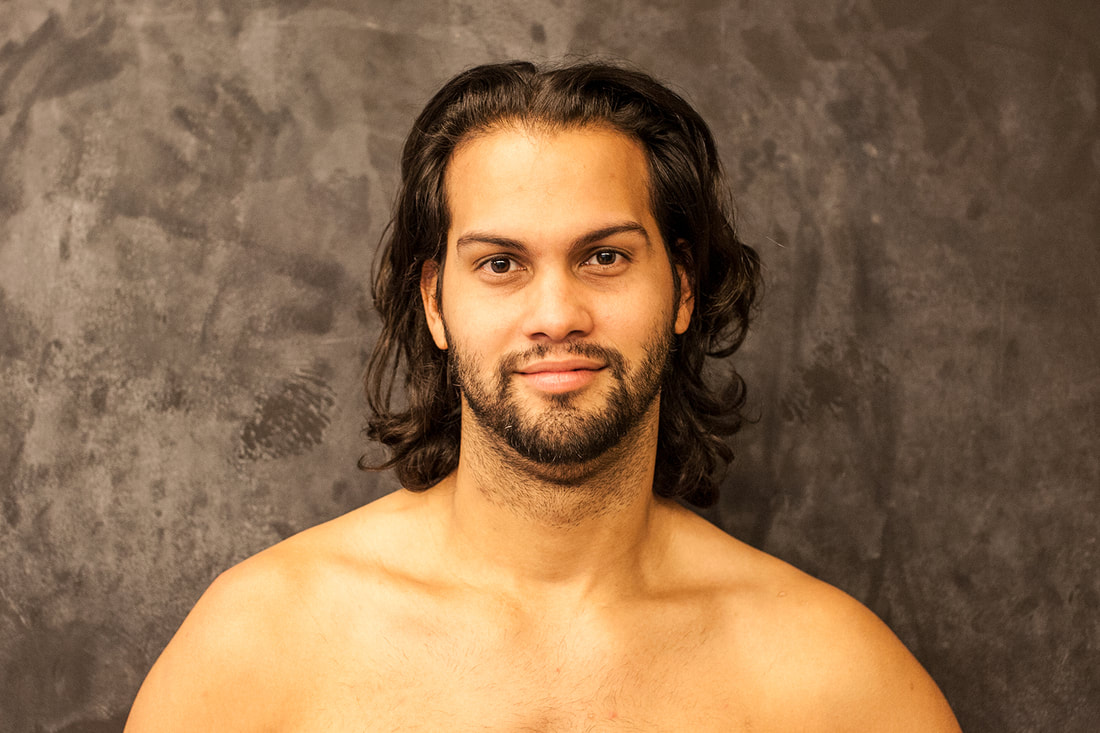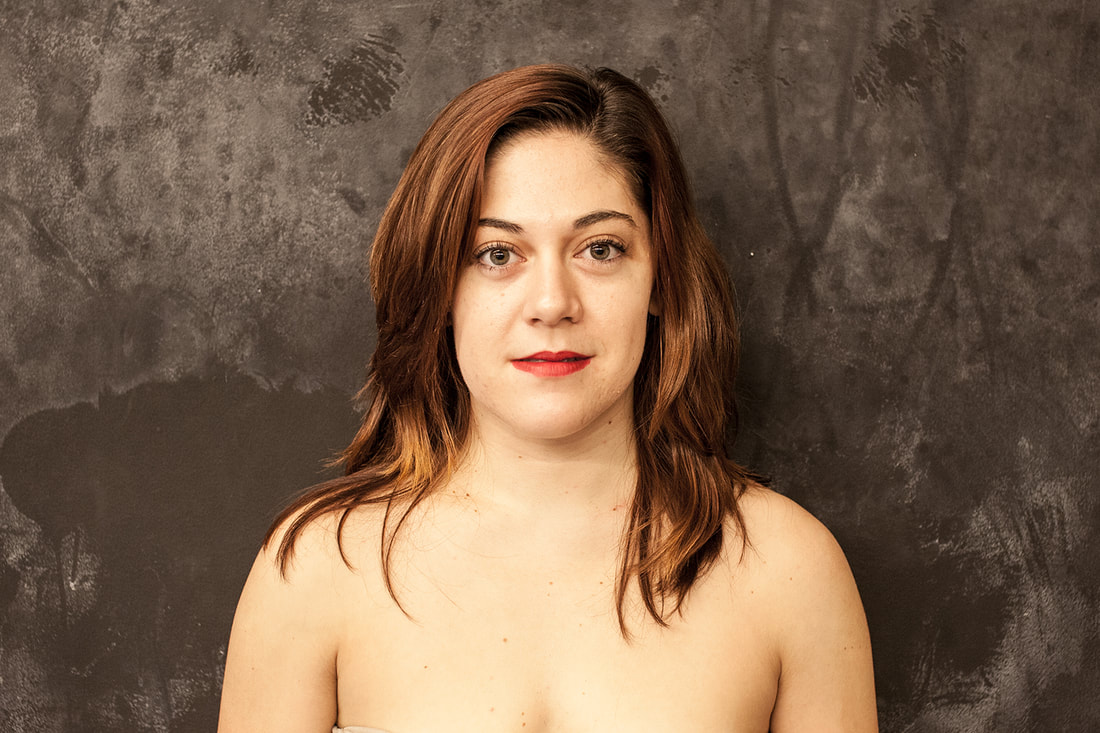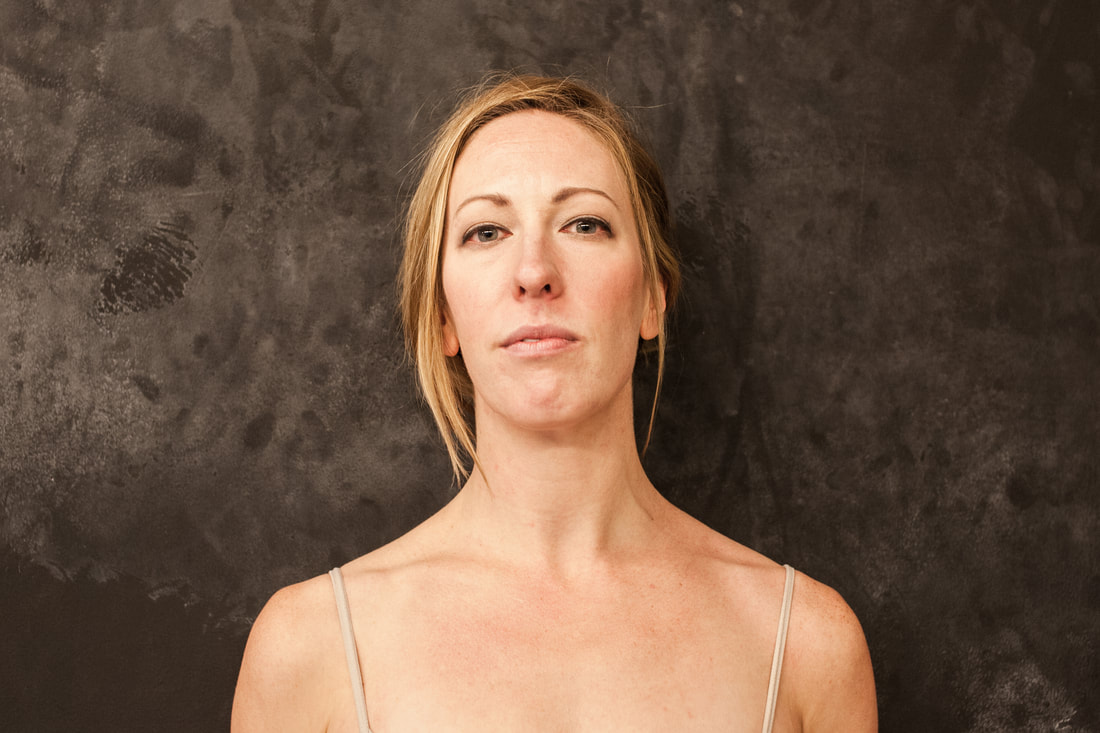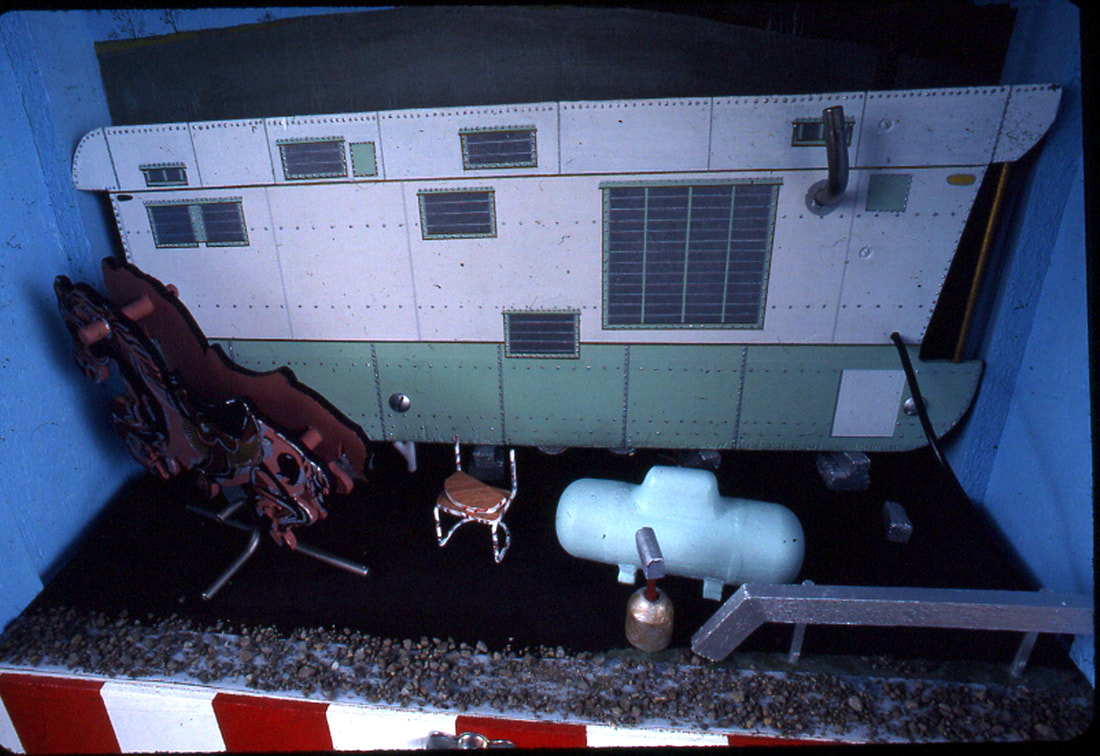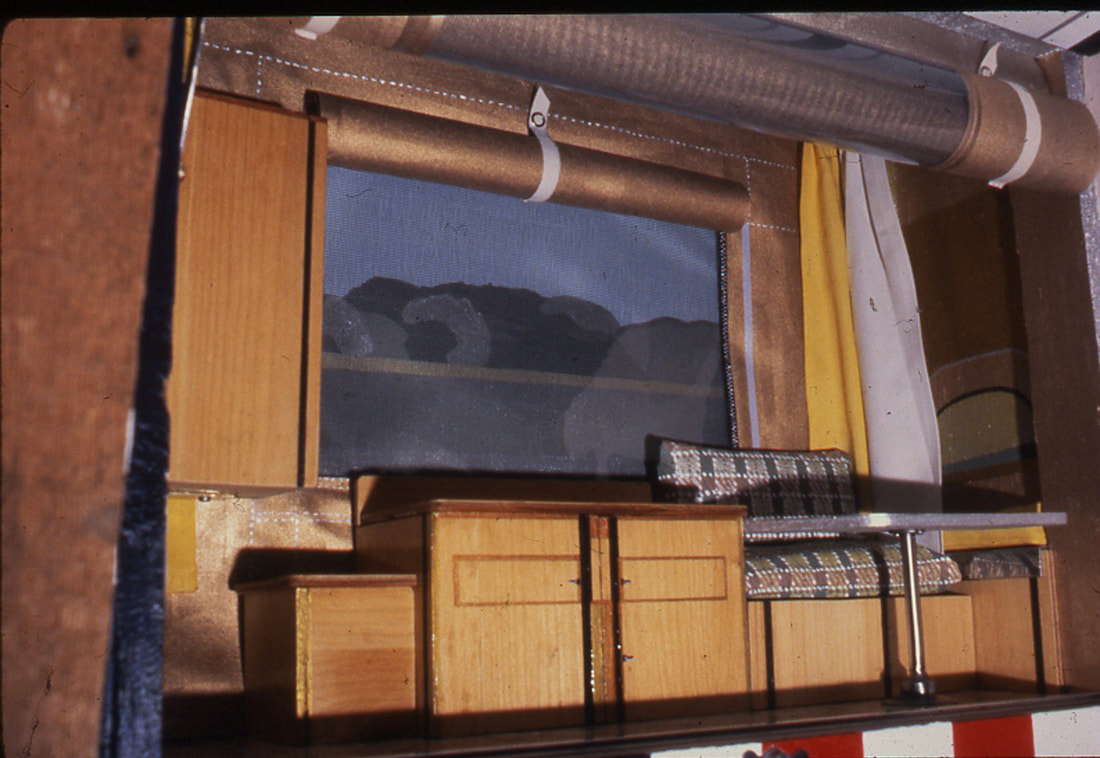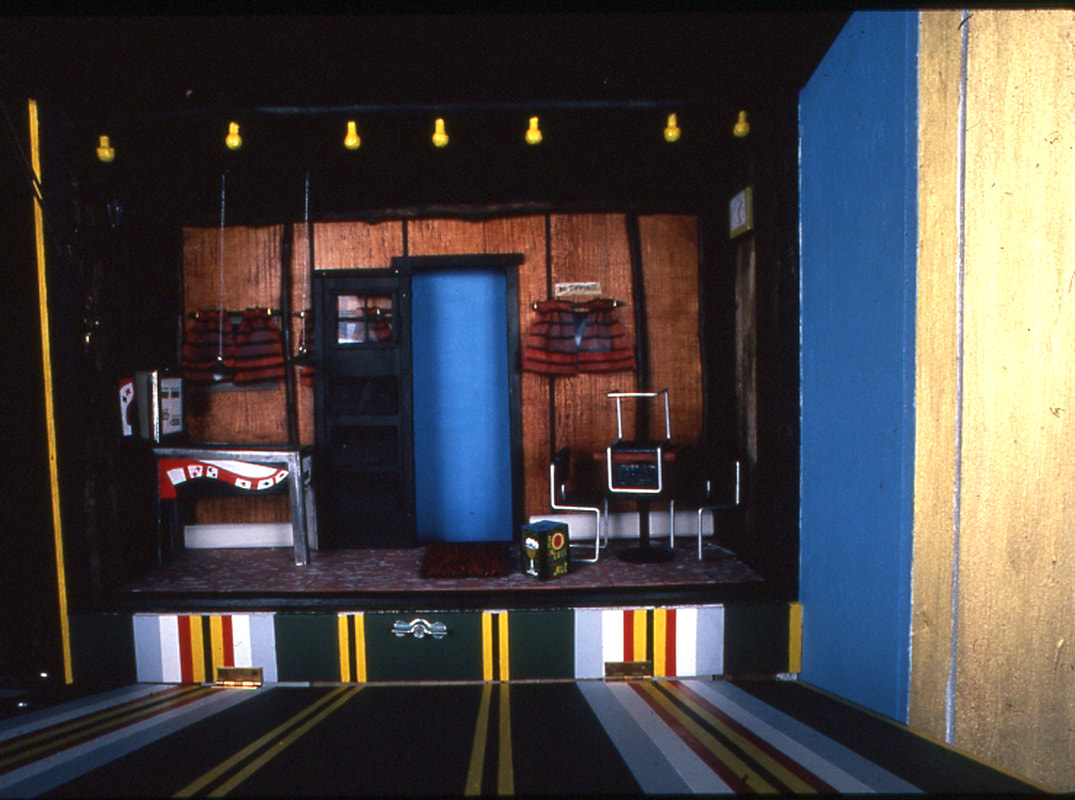|
Made in a Trailer Park I remember the broken years you lived in that rumpled land submarine someone else had run aground at the park behind the drive-in. The faded green trim. The once upon a time white, a wind-buffed shade of bone. I remember how we would make up stories of all the lives given to it, lost to it, as if that dented trailer were a ship night-mangled on a reef of failed dreams, again and again, over the years before you and your mom pieced it together for your own doomed voyage, which seemed destined to leave you stranded there. I remember the way your mom rigged up that shower out back. Those three shivery buckets. The way you squealed from the cold, even in summertime. I remember the way she would rinse between double features. The glow from the giant screen filtered through the two small windows of your home, brightening her shoulders as if she did have stardust, as if she might have been a washed up, washed out, shooting star. I remember all those movies. The hollow sound of the tin roof beneath our feet as if the world might swallow us whole. The day that hail storm pinned you down for hours, as if trying to break through, trying to break you. I remember how you swore you’d get out. You’d wash your hands of that place, of that life. Here it is all these years later, someone else catching sight of you from that not quite collapsed abode. A girl, maybe, on the one-eared rocking horse you left behind, corralled in the stony yard. A mom, or dad, or aunt, maybe, looking up from a feeble kitchen chair plunked by the new water hookup, watching your massive face, that long ago ache in your eyes something you have turned to gold. No one even noticing the rotted corner of the big screen. Peeling layers of paint. All they see is the tear you have trained to run down your right cheek. As if you have channeled some part of you that never got out, that never truly got away. by Lafayette Wattles Video by Meg Willing
Two Pictures Despite the elbowed exhaust pipe reaching for the sky on the outside of the trailer, the smell of bacon grease mixed with stale cigarettes hits the back of Cindy's throat the minute she walks in the door. Flimsy and crooked, the door swings out, and hangs opened behind her. She can see into every room from the doorway. No one is there. She takes three steps to the back wall and looks out the window above the frayed and flowered couch. But the backyard is deserted… Robbie's rocking-horse stands to one side, flanked by a broken stool. It feels like a sucker punch to the gut, how much she misses that kid in an instant. A few feet away, the welding torch sits on the ground abandoned next to a large metal storage tank. She thinks maybe that's a sign Ed will come back soon. But she can't stand the smell inside, so she walks back out the dilapidated door to sit on the cinderblock steps. She'll be able to see his truck the minute he turns on to the road. So if he doesn't want to talk to her, tough shit. He'll have to anyway. Ed shuffles along in the line of guys punching out. And like every other one of them, lights up a cigarette the minute he walks over the threshold. They grunt their goodbyes and fan across the parking lot, Ed in a beeline for his rusted out F-150. He doesn't bother locking it – who would steal this heap? But still, he's surprised to see the large yellow envelope on the seat. Left where he couldn't miss it. He picks it up, and swings himself in behind the steering wheel. He turns the sealed envelope over – but there are no markings on it. Still, he knows Cindy left it. Back in the good ol' days, Cindy used to leave him love notes, little presents – a handful of beef jerky sticks, once in a while a paper plate of brownies covered in aluminum foil. He always suspected the sweets were just her way of winning over Robbie. Ed rips open the seal, and finds an 8 x 10 photo. She's facing straight into the camera. But with eyes that seem to be looking inward, at her own thoughts, instead of at him. Her hair, her skin, her lips, all the color of honey. The image is nearly life-sized – just her head and strong shoulders – bare except for two flesh-toned spaghetti straps. Her hair is pulled back, but long loose strands frame her face like always. It looks like she posed in front of the blackboard in her classroom. He pictures her propping up the camera, then closing the door and taking off her sweater to stand there in her undershirt like that. He studies the way her one front tooth overlaps the other, just the tiniest bit, so that it almost shows between her slightly parted lips. And those pond green eyes, like summer calling to him after a long winter. She is daring him to still love her. And, the trouble is, he does. By Rhonda Morton by Christina Morris
**Special note: Sarah Foster chose to be both a writer AND a collaborator, so it made sense to layer these collaborations together as follows:
Megan Grumbling, writer + Sarah Foster, collaborator (dancer) Sarah Foster, writer + Simon Bjarning, collaborator (musician)
Starlight: A Choreographic Soliloquy
The essence of the dance is mint. The dancer enters, on finger-points, from above the trailer. A cool, shivery touch. Optimism and goosebump. Innuendo. The dancer’s fingers ever so lightly graze the surfaces – trailer, broken chair, rocking horse. A quivering bourée downstage. Peppermint, wintergreen. Starlight. Stella. Stella! The dancer gives a quivering shake. A beautiful, scintillating shudder. Like jazz hands. Like Pentecostalists seized with God. The shuddering is meant to express mint. The flash of her hands, palms open, Starlight. The sudden stoic whites of her eyes. Highway and Canyon. Her character lives in the trailer, waters the stones, checks the mail, paints peppermint stripes on the yard’s breakages and ends. Horizon. Her stoic whites of eyes, of course, are off-stage. The meta-proscenium. But it’s a distinction without a difference. Highway and Canyon. Off-stage, above the proscenium, the dancer widens her eyes. Horizon. Winks. That wink is not in the choreography. And yet it is true to the spirit. Mint. Optimism, innuendo, Highway. She is a good dancer. She can improvise. The dancer delicately spider-crawls up the trailer wall. And though the dancer has her choreography, the rules are loose. She has choice in her fingers. Even in her eyes. I've written it in, her choice. She can elect to wink. She is not a tiny dancer. She is quite tall, actually. Her hands in the yard. As tall as the trailer. When she reaches down into the yard, it is not like the hand of god; it is better: the hand of a dancer. The dancer improvises, with one finger, against the rocking horse. She does not ride the horse but rocks it. One finger. It conjures a certain kind of cowboy, a certain kind of yeoman farmer. Bootstraps, Fruited Plain. This choreographic theme is called Hope: The dancer stands two fingers on the chair and raises her pinkie and thumb. The dance is all about conjuring. Discovery. Optimism. See, how she checks the mailbox. With one finger, the dancer taps the mailbox, three times. Three times, like a knock. From her palm, magician-like, appears a small stone. She puts it with several others on the ground. She is building a wall with the stones. A sort of wall, anyway. Really she just waters them. But now it is tomorrow, and something changes in the dance: Today, no stone will come in the mail. The dancer taps the mailbox, reveals an empty flash of palm. Not a pebble, not even gravel. And the next day. Taps, flash-of-palm, empty. Beat. Again. Not even sand. Nothing to put in the wall. Nothing to water. Every day until now there's been a stone come in the mailbox. And so is it a kind of a political show I have choreographed, a political dance? How the stones keep arriving until they don't? The wall that is sort of a wall? How only one dancer can ride the rocking horse at a time, and even then, only with one finger? Both the stones and the dance seem so much smaller onstage. And bigger. The grandeur, the squalor. I’ve written dances for a lot of shows – music boxes, grange halls, but this one I can't quite get a handle on. Comedy or tragedy? You can't tell from the music; such a pastiche. Maybe it's not really a political dance at all. Maybe it's all about the body. The body in space. The dancer traces a finger up the stage-right wall, then leaps her palm to the far wall, clearing the horse. She dances it well, with abandon, minty ecstasy. Starlight Optimism. It's not easy. The syncopation, the compartmentalization. But it's beautiful, too, and when she hits it just right – the leap, clearing the horse, the gas tank, the grandeur, the squalor – stones or none, well, it just must feel so good in your body to pull off that kind of leap. And this set she’s leaping over, the setting of the dance. This trailer, that is. A trailer, wintergreen green. A symbol? A screen? A scrim? Perhaps the dancer herself is uncertain. Is the trailer a grotesque or an idol? Perhaps it is Schroedinger's trailer: Until you open it up, it is both. This choreographic theme is called Cognitive Dissonance. She moves on a line. On a point. Spins. Is she an electron? An angel? You can see from the candor of her dance that the dancer doesn't want to condescend to the trailer. She doesn't want to be precious. She doesn't want to use fairy dust. Everyone involved in the dance has had to contend with the problem of representation of the trailer. Is it a symbol? A scrim? A jack-in-the-box? The secret passage? A pasteboard mask? At some point, someone is going to have to knock on its door. The place I live, it's small too. Doesn't everyone live in a small place? It's called a body. A Body, this choreographic theme is called. The dancer moves at a slow 3. In a wave. This one, Society. She moves at a 6. In a writhe. This one, Grief. She moves at a 1. Limp. Her character has heard that the stones are really pebbles. That the stones are only gravel. That the stones are sand. Will the stones come again? The dancer holds her fingers poised near the mailbox, waiting for the next bit. I'm not sure I remember this next bit. The dancer starts to tap the mailbox, but hovers. Gives a quivering shake. Grazes the surfaces of trailer, broken chair, rocking horse. I have choreographed her movements. But she must dance them. Her fingers, her hands. Her lips, brows, eyes, high above the proscenium. The moon of the dance, so to speak. The stars. A kind of Starlight. A most beautiful light. Horizon. Even when it is only on a stage, only a dance. This whole show, truth be told, is more than a little hypothetical. A work in progress. Let's call it an experiment. Horizon. She widens her eyes. Tingling with spin, gravel, and mint. Optimism Like jazz hands seized. An unpredictable experiment. A knock on the door. But maybe, possibly, a great one. by Megan Grumbling The Dance is Mint from MoveWorks on Vimeo.
Reader: Douglas Milliken
Dancer: Sarah Foster
Original music, "Ours" by Simon Bjarning
in response to: Maybe I should just sit here. Maybe I should just wait for it to happen. I stop jumping. I mutter under my breath words I wouldn’t say in front of my mother. My not-so-carefully chosen clothing barely covers my thighs. I become acutely aware of a sticky film of sweat underneath my knees. Water starts to drizzle through, under the edge of the window grate. The overhead florescent lights flicker and make an intermittent buzzing noise. Like the sound of distant cicadas on a dewy night, somewhere in the South where the trees are bigger than they should be, with low hanging arms covered in lace. My arms feel heavy. I’m too lazy to hold them up. Maybe if I had done it differently. More determined - or from a different angle. This would have gone by faster. If wall clocks were still a thing, I’d watch the passing of the seconds. Every new moment eats up the past. Like a sewing needle poking through tough fabric, over and over again. Poke. Poke. Tick. Tock. But I don’t have a clock, just a ventilation pipe. My jaw tenses. I plunge my weight into the chair and push it to the corner. The back fell off months ago. That’s one of the reasons why I did what I did and why I’m doing what I’m doing. Too many broken things here. I tried to repair this sad little chair the way I repair everything - with candy cane striped tape and a good pun. I have many years of experience with inanimate objects - and the one thing that I know for sure is that they appreciate levity. Then I remember Pone, my beloved rocking horse. He sways reluctantly in the corner. His mechanical black eyes speak of many lives lived and his rusty joints squeal of abuse. I know he wants to know why we’re sinking. Why I allowed a perfectly fine mint and white motorhome to slide into my neighbor’s lake. Why I avoided Charlie and Yvette’s dinner invitations. Why I stole so many wrenches from the local hardware store. Why despite the tape, and the wrenches, and the jokes, and the fake repairs, we are still sinking. But it’s too soon to explain anything to anyone, especially a rocking horse. For all I know, we will be floating here forever in an endless circular river. I tell him, in my most caring voice, “don’t spell part backwards, Pone. It's a trap.” That’s one of his favorites. His laughter echoes against the outer walls, waves striking a tin roof. I read once, in a very smart-seeming book, that you can control your emotions by controlling your face. If I hosted a dinner party, that’s what I would talk about to entertain my guests. Then I’d make everyone at the table experiment with it. I’d tell everyone to make angry faces, and Charlie and Yvette’s brother would start screaming at each other. I’d tell everyone to make frowny sad faces, and Joelle would sink into her chair, watery-eyed. I’d order a chorus of hyena laughs and we’d all be best friends forever. I smile at the thought. I smile hard. And not just with my lips, but with my chin, and my eyes, and my teeth. Especially my teeth. To match my body to my face, I take a wrench in one hand and walk around the perimeter of the room, slapping my bare feet on the linoleum and lifting my knees high like a soldier. A joyous dance to match a joyous face. I bang the wrench on the hot water tank and I spin and hop and spin and hop. I shimmy left - I shimmy right. Joy boils in my flesh. Then the floor drops below me. The walls moan around me. I crouch down and back up against the wall. I drop the wrench. I insert my index fingers into the creases of my knees. I find comfort in the slick proximity of skin on skin. The small window by the ceiling has darkened. Water seeps in along the upper edges. A pool of liquid creeps up from the lowest part of the floor. I hear it coming. I wait. And smile. by Sarah Foster
BONUS! Sarah also brought a version of her writing with a short set of instructions for a willing volunteer to improv a short piece. Rhonda Morton (also a writer) volunteered:
I've Never Done This Before from MoveWorks on Vimeo. |
66 OURS - Collaborative Writing ProjectStarting with Phase 1, writers had 66 days to base their writing on 1 anonymous person & 1 vignette, dutifully and judiciously assigned to each writer by Amelia. Photos given to the writersEach writer was given a combination of 1 person + 1 vignette from the following:
Person 1
Person 2
Person 3
Vignette 1
Vignette 2
Vignette 3
Categories
All
|
